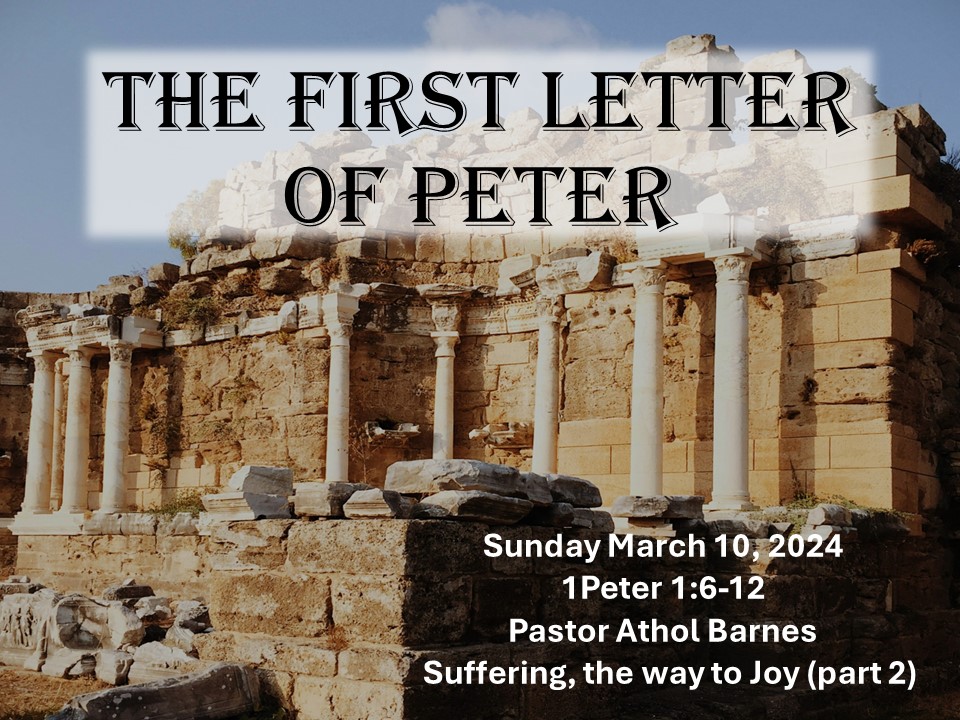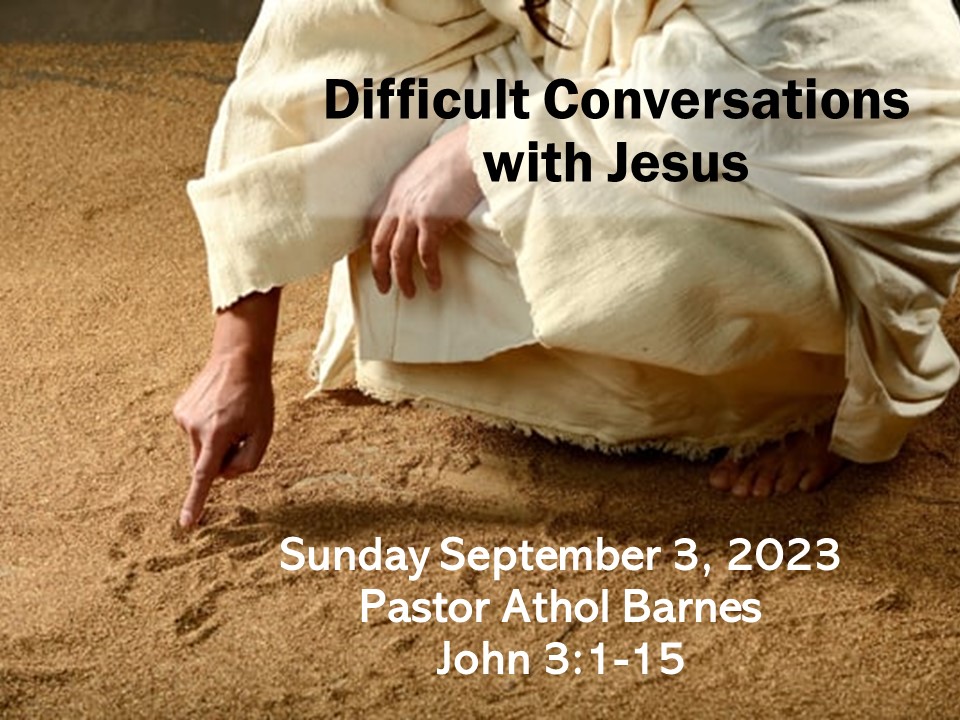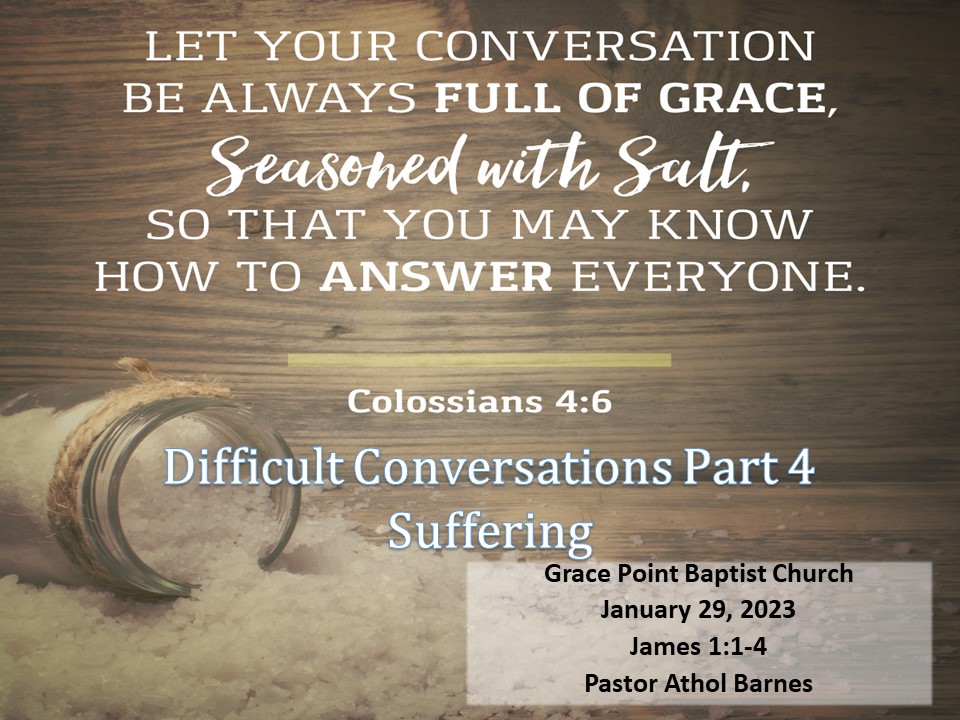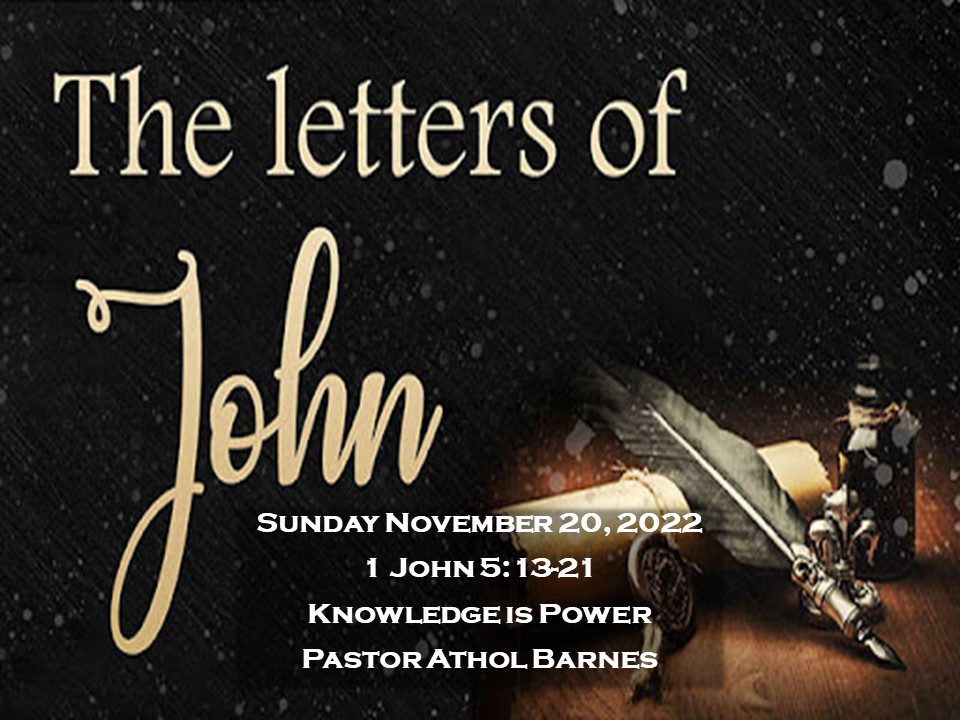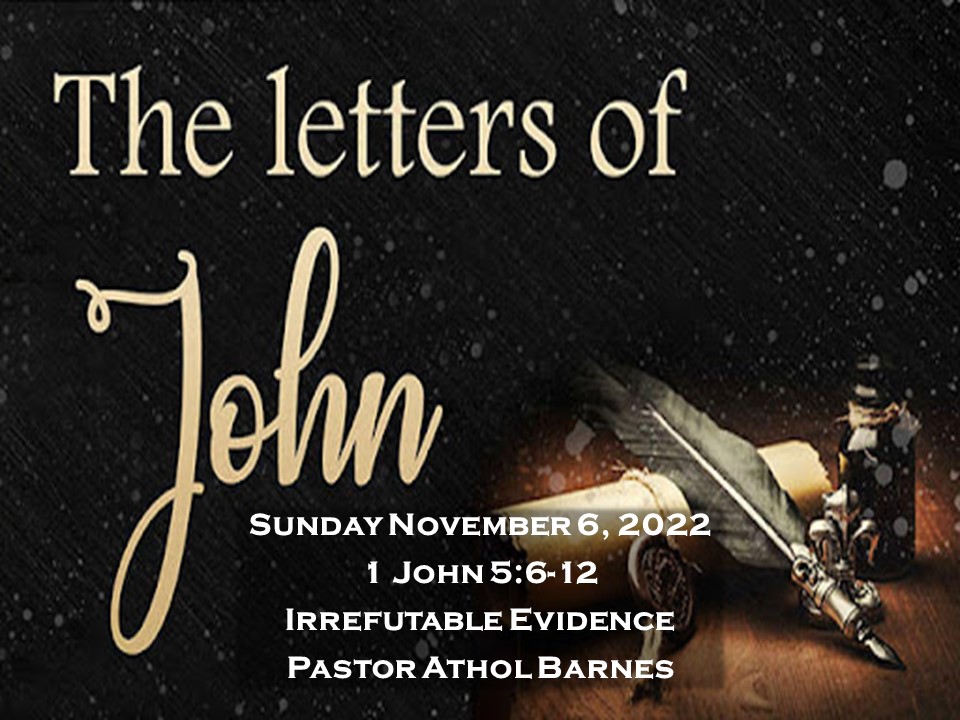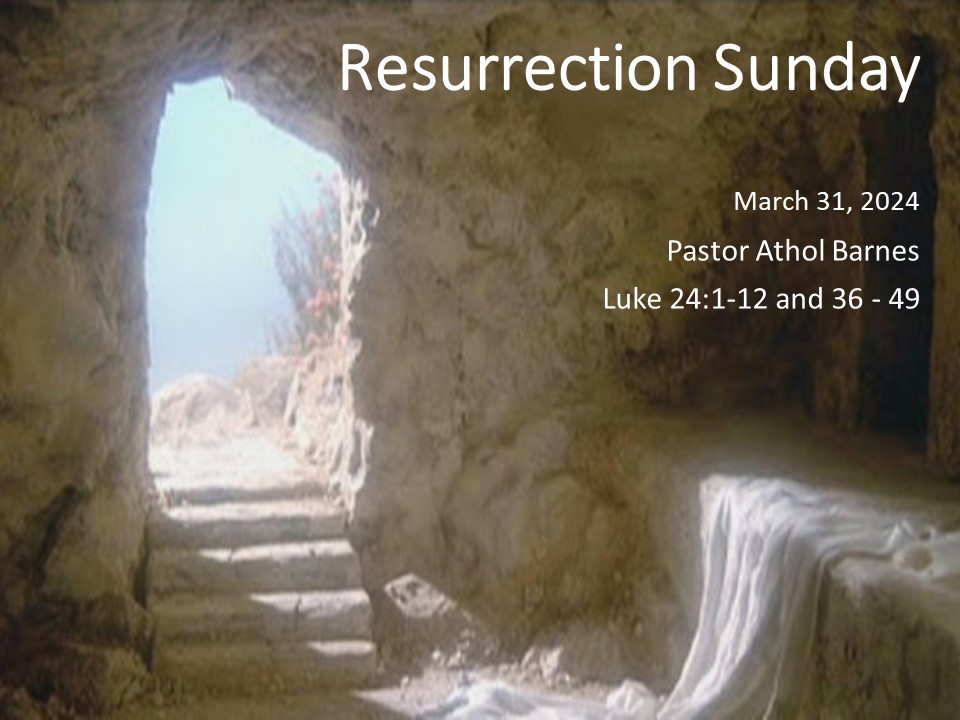
I love science fiction, especially time travel and movies about alternate dimensions.
In our entertainment immersed culture, we sometimes struggle with what is real and what is not.
The reality of the resurrection of Jesus Christ is something that is extremely hard for us to grasp, but yet it is absolutely real. It is not science fiction.
Death is a very real part of our existence, and funerals are often a time when people are confronted by their own mortality. They are a somber time of realization that we all will die someday.
This past weekend we celebrated the fact that Jesus is alive and that by his resurrection from the dead, we do not have to fear death. The Apostle Paul quoted the prophet Hosea in 1 Corinthians 15: 55; “Where, O death, is your victory? Where, O death, is your sting?”
Jesus is alive!
Throughout the pages of the Bible, we see prophecies and their fulfillment hundreds of years apart. Notice that when Jesus revealed himself to his disciples, he referred to the Law of Moses, the Prophets, and the Psalms containing information about himself (see Luke 24:44). The entire Bible points to Jesus (see Isaiah 53 and Psalm 22).
The message of the early church was the resurrection of Jesus Christ. Before his ascension Jesus spoke to over five hundred people at one time (see 1 Corinthians 15:1-6). It is real.
The resurrection was common knowledge at the time, and it is also recorded in secular history. Apart from that, if Jesus had remained in the tomb, how did that band of fearful broken disciples start a church that exploded across the world and continues to expand today?
If Jesus didn’t rise from the dead, we have nothing to hold on to; The Bible is an empty document and cannot be the living word of God. The bodily resurrection of Jesus is what determines our salvation; it is our hope of glory. Because Jesus rose from the dead, we know that he has conquered death and that by placing our trust and faith in him we are assured of salvation and eternal life. Because of the resurrection, all the promises of God’s word are true, and we can stand on those promises.
When we talk about the resurrection, we must understand that Jesus didn’t simply rise from the dead. Many people have been miraculously raised from the dead, but they ultimately died again. What’s the difference? Jesus was raised with a new body, a body that is not subject to aging, sickness, or weakness. As Paul writes in 1 Corinthians 15:20; and Colossians 1, Jesus is the firstborn from among the dead, the first of a new kind of body—an eternal body.
The resurrected body of Jesus is a physical body. Jesus ate with his disciples and walked and talked with them; he was flesh and blood but different. His new body is a perfect eternal body, one that he still has today as he sits at the right hand of God, and the same body he will have when he returns as the King of Kings and Lord of Lords (see Revelation 19).
The cross is where Jesus willingly offered himself as a sacrifice for our sins. Jesus, being perfectly sinless, died in our place. But Jesus’s resurrection from the dead was a declaration by God that the price had been paid and we now can be made right with God. By raising Jesus from the dead, God was in effect saying that he approved of the work Christ had done and that there was no more penalty needed for sin.
Does that mean we never sin? No, we are still subject to temptation and sin; we all are well aware of the fact that no Christian is perfect. But it does mean that when we do sin, we can come to Jesus and ask for forgiveness of our sins (see 1 John 1:9).
The cross is where the price was paid for our sins; the resurrection is where we obtain power to live the Christian life.
What does the resurrection of Jesus mean for us? It means that…
- Because of the resurrection, Satan and death itself have been defeated. Because of the resurrection, we do not have to fear death.
- Because of the resurrection, we are made right with God by of the blood of Jesus shed for us.
- Because of the resurrection, we can live victorious Christian lives. Jesus ascended into heaven and sent the Holy Spirit, the third person of the Trinity, to live inside all who believe in him, to give us power to live a life that brings glory to God (see Acts 1:8).
- Because of the resurrection of Jesus, we have hope of a glorious future. Jesus said in John 14; “I am going to prepare a place for you… and if I go, I will come back and take you to be with me…”
Unless Jesus returns soon, we will all face death one day. For those who die having a personal relationship with Jesus Christ, we will be receiving a new body, just like the one Jesus has. 1 John 3:2 says, “Dear friends, now we are children of God, and what we will be has not yet been made known. But we know that when Christ appears, we shall be like him, for we shall see him as he is.”
This is not science fiction my friends; this is reality. Jesus is coming back again; his word promises it. Maybe some of us or all of us will die before he comes again, but that does not mean we need to fear death. Because of resurrection Sunday, we no longer fear the uncertainty of death. Those who have made the decision to live for Jesus in this life, will live with him for eternity.
“Jesus said to her, “I am the resurrection and the life. The one who believes in me will live, even though they die; and whoever lives by believing in me will never die. Do you believe this?” John 11:25-26



